Mon 3 May 2010
Tribeca Film Festival Dispatch #4: Over and Out
Posted by Ethan under Film Festivals
Comments Off on Tribeca Film Festival Dispatch #4: Over and Out
My coverage of the 2010 Tribeca Film Festival concludes with a few more capsules and a small awards ceremony.
The Infidel
Directed by Josh Appignanesi
Starring Omid Djalili, Richard Schiff, Archie Panjabi
**1/2
I can’t say that I’m familiar with the work of British comedian Omid Djalili, who is billed in the press notes for his first major film as one of the U.K.’s most popular comics. Because of that, I don’t know whether his role in The Infidel reflects his stand-up act or if he’s–gasp–actually acting in this tonally challenged comedy about a Muslim man who discovers that 1) he’s adopted and 2) his birth parents were Jewish.  At heart, The Infidel is basically a religion-themed remake of La Cage aux Folles, with the crux of the plot hinging on the Djalili’s attempts to impress the visiting parents of the girl his son intends to marry. In this case, the prospective in-laws are a pair of devout Muslims, which means that he has to keep the revelation about his birth a secret from his family even as he attempts to meet his real father, who is currently on his deathbed in a Jewish hospice. To navigate past the institution’s watchdog rabbi, Djalili enlists the aid of a Jewish-American cab driver (played by West Wing veteran Richard Schiff) to give him lessons in the ways of being Jewish. Where La Cage aux Folles played its premise as a straight-up farce, The Infidel is a more ungainly creature, at times going for broad laughs (like a montage of Djalili’s attempts to master such Jewish traits as matzo ball soup and exclaiming “Oy!”) and other times aiming for more socially-conscious satire with decidedly mixed results. As for Djalili himself, he comes across as a British version of Kevin James–a good-natured roly-poly individual who is forever confronting outlandish obstacles that the world puts in his way. (He even comes equipped with a hot wife, a staple of any American sitcom about a heavyset blue-collar guy.) Perhaps he displays a more distinctive comic personality in his stand-up routine; if that’s the case, he may want to consider writing his own screenplay for his next attempt at film stardom.
—————————————————————————————————————————–
The Disappearance of Alice Creed
Directed by J Blakeson
Starring Gemma Arterton, Martin Compston, Eddie Marsan
***1/2
British writer/director J Blakeson makes a very promising feature debut with this hugely entertaining chamber room thriller, which takes place almost entirely in a single location–a small two-room apartment somewhere on the outskirts of London. Ex-cons Vic and Danny (Eddie Marsan and Martin Compston) have rented the flat in order to pull off a get-rich-quick scheme; they’ll kidnap the daughter of a wealthy businessman and force him to fund their lengthy beachside vacation. The target they settle on is one Alice Creed (Gemma Arterton, soon to be seen as Jake Gyllenhaal’s sidekick in Prince of Persia: The Sands of Time) a steely twentysomething who isn’t exactly on speaking terms with her old man. Do I even have to mention that the operation doesn’t go according to plan? Expertly plotted by Blakeson, the movie offers up a fresh plot twist every twenty minutes or so, all of which deepen the characters’ backstories and make their relationships all the more compelling and complex. Thankfully, these revelations all make dramatic sense as well–Blakeson doesn’t put the desire to surprise ahead of the story’s internal logic. The cast is terrific across the board, with the always reliable Marsan delivering yet another standout performance. If the movie has a flaw, it’s that the climax isn’t quite as thrilling as the build-up towards it; once the action shifts out of that claustrophobic flat, the narrative loses some of its urgency. Nevertheless, The Disappearance of Alice Creed achieves a tense energy that many thrillers with ten times its budget and number of locations lack.
—————————————————————————————————————————–
My Trip to Al-Qaeda
Directed by Alex Gibney
***
Alex Gibney follows-up his Oscar-winning War on Terror documentary Taxi to the Dark Side with another exploration of post-9/11 America, this one told from the perspective of author, screenwriter and actor Lawrence Wright, whose one-man show of the same name debuted off-Broadway in 2007. Not simply a filmed version of Wright’s solo performance, which chronicled his process of penning the book The Looming Tower about the rise of Osama bin Laden and Al-Qaeda, the movie builds upon the play with new interviews and a wealth of news footage. Anyone expecting explosive new revelations about the Iraq War or bin Laden’s motives may be disappointed, as much of this material has been documented elsewhere. But Wright brings a compelling point-of-view to the by-now familiar narrative; as someone who traveled extensively in the Middle East and has spoken at length with associates of bin Laden, he’s able to get past the stereotypes of the region that often plague mainstream news coverage and really explore why Al-Qaeda has been so successful at waging a sustained campaign of terror and violence. There are no easy answers to the situation we find ourselves in the Middle East and Afghanistan and, to their credit, Gibney and Lawrence don’t attempt to provide any. My Trip to Al-Qaeda primarily wants the audience to understand how the country arrived this point and, in doing so, have a better sense of the questions and consequences facing us as we move forward.
—————————————————————————————————————————–
The Other City
Directed by Susan Koch
***
If nothing else, documentary filmmaker Susan Koch has performed a valuable public service by exploring a side of Washington D.C. too few people (myself included) know about. The “other city” namechecked in the title refers to the neighborhoods just adjacent to the tourist hot-spots, areas that are marked by high rates of HIV and AIDS. Koch profiles some of the residents living with the disease, including a single mother with three young children who is in danger of being thrown out of her apartment, the operator of a needle-exchange program that’s constantly in need of funding and a support group made up of ex-cons suffering from HIV/AIDS. Perhaps the most affecting material deals with Joseph’s House, a hospice that provides terminal patients with a comfortable place to die. One area where The Other City falls short is in providing an overview of how exactly the disease was able to run rampant in D.C. almost unchecked. We’re told that the local government repeatedly failed in their duties, but a more comprehensive history would have helped shed more light on the present-day circumstances the people in the film have to wrestle with. Regardless, The Other City is eye-opening viewing for both D.C. residents and anyone that has ever paid a visit to the nation’s capital.
—————————————————————————————————————————–
The Killer Inside Me
Directed by Michael Winterbottom
Starring Casey Affleck, Jessica Alba, Kate Hudson
Freakonomics
Directed by Alex Gibney, Morgan Spurlock, Rachel Grady, Heidi Ewing, Eugene Jarecki, Seth Gordon
Consider this a placeholder reaction until I get a chance to discuss both of these movies in more depth closer to their release dates, which are currently set for June and October respectively. The Killer Inside Me is Michael Winterbottom’s controversial adaptation of Jim Thomson’s 1952 novel about a small-town cop whose placid exterior masks a deeply disturbed mind. I hadn’t read the book before seeing the film, but I was able to get my hands on a copy immediately following the screening and am devouring it in preparation for a much-needed second viewing of the movie version. The Killer Inside Me debuted to extremely mixed word of mouth at this year’s Sundance Film Festival and the complaints about the movie aren’t entirely off-base–it is a brutal movie that contains two scenes of startling violence. But I found it wholly compelling throughout, thanks to Winterbottom’s mastery of tone and the lead performance by Casey Affleck, who fits the character to a T. In many ways, Killer is a Coen Brothers movie minus their dark streak of humor; Winterbottom plays this material absolutely straight, even when a joke or two might help alleviate some of the story’s inherent nastiness.
You’ve heard of anthology movies before; those are films that consist of a series of shorts directed by a group of filmmakers that all share a common theme or setting–think Four Rooms or New York Stories or Paris, I Love You. Well, Freakonomics is an anthology documentary. Based on the best-selling book by economist Steven Levitt and journalist Stephen Dubner, the 90-minute picture consists of four micro-docs directed by such notable documentarians as Morgan Spurlock (Super Size Me), Alex Gibney (Taxi to the Dark Side), Eugene Jarecki (Why We Fight) and Rachel Grady and Heidi Ewing (Jesus Camp). (The King of Kong‘s Seth Gordon is also on hand to link these larger pieces together with some short interstitial material.) Each filmmaker covers a topic that is also addressed on the page; Spurlock, for example, explores the effect a baby’s name might have on his or her future career prospects, while Jarecki ponders whether the increased access to abortion following Roe vs. Wade is directly responsible for the decline in crime rates during the ’90s. Meanwhile, Gibney addresses the culture of corruption that exists in Japan’s Sumo wrestling scene and Grady and Ewing follow an experiment conducted in a Chicago public school where kids were offered financial incentives to improve their grades. Like all anthology movies, some of these segments are better than others (I personally considered Grady and Ewing’s movie to be the best of the bunch, while Spurlock’s glib effort was the low point) but overall, Freakonomics is entertaining enough to be a sizeable hit when it is released this fall.
—————————————————————————————————————————–
NYC Film Critic’s 2010 Tribeca Film Festival Awards
Favorite Movie: Soul Kitchen
Runners-Up: The Killer Inside Me, The Disappearance of Alice Creed
Least Favorite Movie: Blood and Rain
Runner-up: Monogamy
Biggest Disappointment: Visionaries
Biggest Surprise: The Disappearance of Alice Creed
Best Actor: Eddie Marsan, The Disappearance of Alice Creed
Best Actress: Josie Ho, Dream House
Best Director: Brillante Mendoza, Lola
Best Screenplay: J Blakeson, The Disappearance of Alice Creed
Movies I’m Most Sorry I Missed: The Arbor, Freetime Machos, Metropia

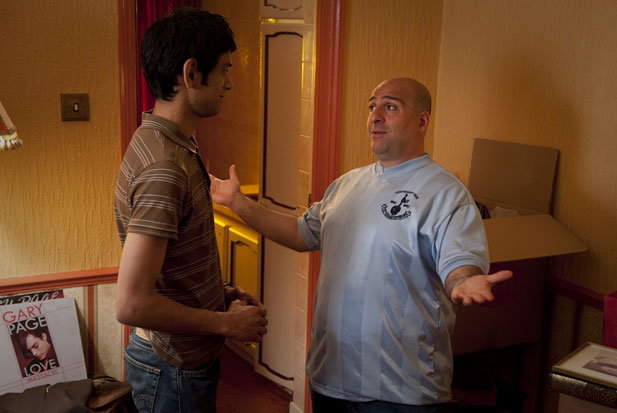
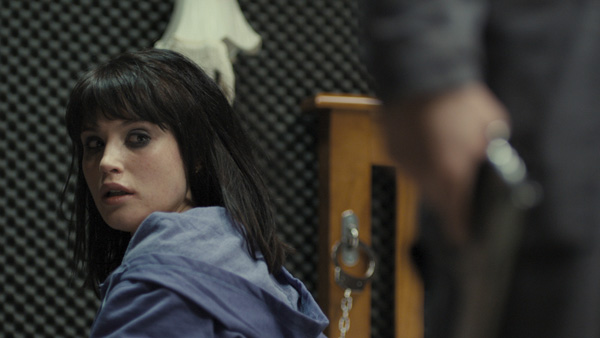
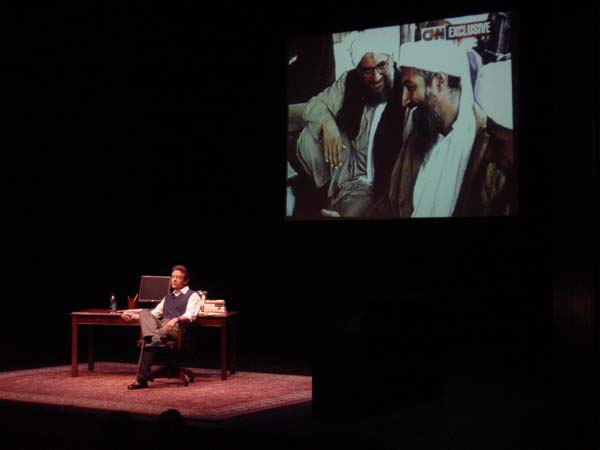
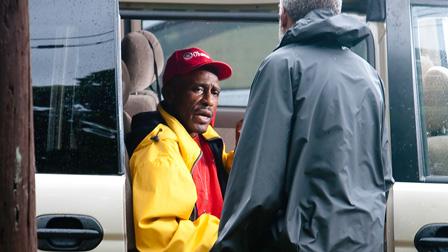
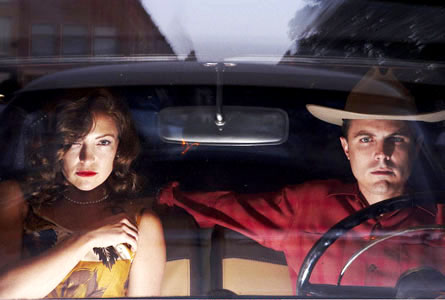


No Responses to “ Tribeca Film Festival Dispatch #4: Over and Out ”
Sorry, comments for this entry are closed at this time.